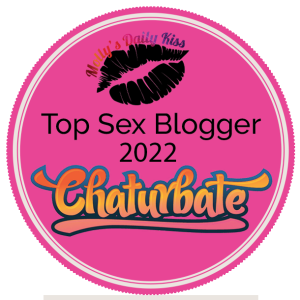Something that most of you may have missed:
During the week a local councillor was suspended from the Green Party of England and Wales for transphobia. As co-chair of the GPEW’s “Women’s Group”, she made the “unremarkable factual observation that transwomen are not female” (not my words). She was ousted from her position for this.
Kathryn Bristow, her co-chair, is a transwoman – or, as the co-ordinator for the Bridgwater Green Party puts it, “a man who wishes to be identified as a woman”. The GPEW councillor in Sunderland weighed in on this, including sentences like this:
“I have witnessed female colleagues issued with death threats and threats of rape by trans rights activists, so in comparison, I have only had a small taste of this vile behaviour.”
gpew sunderland councillor
The prevailing wisdom in the under echelons of the GPEW is that, despite the fact that we passed a gender self-ID motion at Conference, trans people (and, more specifically, M-to-F transwomen) are dangerous to women and children. Pink News reports on this story here.
Yesterday I received an e-mail from my local Green Party (of which I am still a paying member) in which the writer, a party contact, said this:
As a party that claims/seeks to respect science it is outrageous that someone has been suspended for saying that transwomen are not female. Firstly, it’s true. Transwomen have XY chromosomes, the definitive marker for male sex.
local green party contact
He followed this up by saying that “telling the truth is, for [him], a matter of conscience.” So I did the same.
My e-mail read thus:
Much as I shouldn’t be surprised by any of this, I am astounded that this sort of viewpoint exists within the GPEW and maybe even some fringes of [my local GP].
Transphobia is not, in any way, an acceptable point of view, and as much as it can be an ‘accidental’ prejudice, it is nevertheless a prejudice, and both dangerous and damaging in every imaginable way, comparable to racism, sexism and homophobia. I have already had my issues with whorephobia (SWERFism) in the GPEW; on this issue, however, I am not content to be silent.
First of all, although ‘sex’ is biologically defined by chromosomes at birth, ‘gender’ is a social construct, and often weaponised. As a cisgender male, I’ve been subjected to “boys don’t cry” narratives (occasionally with those exact words); the recent tragic death of Sarah Everard has added weight to the right-wing media’s “girls are weak” and/or “need protection by men from men” sort of thing. All these viewpoints are damaging. They are insulting. They do not help. They also promote gender stereotypes which we should be working to eliminate.
We should not be focusing on ‘protect our daughters’, rather ‘educate our sons’. However, it is equally important to acknowledge that not everyone is a daughter or a son.
As a social construct, and as a matter of consent, gender is intrinsically flexible and changeable, and it is the individual’s right to make that decision (as many times as they wish; gender identity can be switched at any time, and as there are more than two genders in existence, this decision can be made multiple time), it is incredibly dangerous to label someone as one gender, especially if they have explicitly said they identify as another. If you are uncertain, it is possible to just ask someone what their gender identify and/or preferred pronouns are; neither question is offensive.
It is grossly offensive to call someone who identifies as a woman ‘a man’ or ‘male’. This is a genuine insult and has no place in acceptable, moral discourse. Trans people have suffered under the pressures of societal norms for far too long (and they shouldn’t have suffered to begin with). The right-wing press label trans activists as unnatural; they are seen with suspicion or unwarranted curiosity for the simple act of not being cis, or hetero, or both, or either. Even at an inclusive event, trans people are often singled out – a lesbian activist group at Pride in London came under fire for handing out anti-trans leaflets, saying that transwomen are not women. Jess Phillips MP recently read out a list of “women and girls” in Parliament, purported to be a list of all female victims of violence, but excluding all transwomen, who weren’t on the list as its author considers them to be ‘not real women’.
Do you have any idea how insulting this is?It’s been said at some point that the GPEW is tying itself in knots about trans rights when we should instead be focusing on the climate emergency (and we should, but we are not a single-issue party and I would urge us not to become so). But we shouldn’t be. It is not an issue to be debated, it is a simple fact:
Trans women are women
Trans men are men
Some people don’t have a gender
Gender is something you identify yourselfand
TRANS RIGHTS ARE HUMAN RIGHTS
and I will not stand by while anyone says anything different. Come at me if you will, but everything I have said above is correct.
ilb (he/him)
I make no apology for anything I said in the above. I joined the GPEW in 2010 because I saw it as an inclusionist, radical left-wing party and this is the first time I have been genuinely shaken by something somebody in the party has said (even if it goes against party policy).
I am sharing this on my blog because I feel that it needs to be highlighted before the press gets their hands on this story.
I am not resigning from the GPEW, but I plan to challenge these damaging and transphobic views in my local party’s upcoming AGM. I will, of course, update you with anything else that arises from this.





